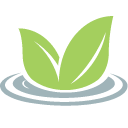The Importance of Self-Care in Addiction Recovery
Within each of us there lives a sweet, defenseless creature in need of a little tenderness. – Elizabeth Gilbert
When I first got sober and the words self-care were mentioned, I was kind of flummoxed. Despite being a woman in my mid-30s, who had [just about] held down a job, and had a [semblance of] an education, I had no idea what that phrase meant. I had barely coasted through life as my addiction ravaged everything I had. I arrived in recovery utterly broken having completely neglected myself. I hadn’t the first idea of what self-care was—but I was fluent in self-destruction. It has taken the last five years of my recovery to develop a toolkit which seeks to care for myself in ways that show compassion, love, and support. But most of all, these tools have been fundamental in supporting my growth and development in recovery.
“What on earth do you mean by self-care?” I asked my first sponsor.

Self-care, she explained, is like a list of activities that could provide some comfort during difficult times in recovery—like taking a hot bath, lighting candles, burning incense, cooking a delicious and healthy meal, sitting in my PJs and watching films, having for brunch with friends, or going for a long walk.
What a strange concept, I thought.
But her floating of that suggestion generated a warm feeling inside me. My shoulders relaxed, I took a deep breath and exhalation, and I felt calmer at the mere thought of undertaking any of those activities. I was sold. I spent the following weeks developing a list of activities and tip-toeing around the idea of trying them. I slowly dipped my toe in the water and, as I began to try them, I started to feel better.
The next step of my self-care journey was taking care of my physical health, which involved tackling my eating disorders. For me, recovery has to be holistic—meaning looking after my whole being. While the above practices had soothed me and provided comfort in my recovery, I was still neglecting myself by my disordered relationship with food—which continued long into my sobriety. It became time to take action. At the two-year mark, I asked for help.
In my journey towards health and wellness, I realized that I was seeking to soothe myself with food my whole life, including recovery. I have found recovery uncomfortable and unnerving; I have experienced feelings of anxiety, fear, and depression. While some self-care activities relieved part of these uncomfortable feelings, there was a well-established pattern of seeking comfort with high carbohydrate processed foods, and that pattern was just as difficult to break as the overwhelming task of stopping taking drugs and alcohol.
I had to re-train my brain to process my feelings, emotions, and stress in a way that soothed me properly. I did that by learning to listen to my body. When I had a craving for certain unhealthy foods—like chocolate, candy or bread—I would take a moment to ask myself what I actually wanted. Was I hungry? Or was I tired? Was I experiencing an uncomfortable feeling that I wanted to avoid? What I found was that most often I wasn’t hungry, I was seeking to change the way that I felt. I was frequently tired too—which always leads to my body craving carbohydrates.
What I started to do instead was to implement a more radical self-care routine. A list of powerful self-care activities that I knew would soothe me and take good care of me.
This is what that looks like and it is available to everyone of any budget:
- 8 hours sleep per night
- Turning off social media an hour before bed
- Finding a means of expression: writing, journaling, speaking
- Taking ten minutes to breathe when I wake up before checking my phone
- Eating three healthy meals a day, with two snacks, when I am hungry
- Drinking two liters of water a day
- Making sure I move for 20-30 minutes a day, even if it is a walk around the block
- Having downtime: taking a bath, reading a book, turning off the TV, getting an early night
- Getting sunlight—ideally in a park or on a hike
- Restorative yoga at least once a week, either in a class or a YouTube video
- Having a massage; whether that is self-massage with a foam roller or tennis ball, or a massage at a spa.
These are just a few activities. You must find your own. The importance of a self-care routine is fundamental to my—and millions of others—recovery. They provide the relief from the stress and trauma that we were trying to avoid with drugs and alcohol.
I recently came across a wonderful article by Elizabeth Gilbert entitled, “What Taking Care of Yourself Really Means.” In this piece, she talked about a woman reaching out to her during a talk she gave. She described this woman as looking like a caged animal, completely neglected. When the woman asked her about the meaning of loving oneself and how to do it. Gilbert said this:
“You need to start taking care of your animal. You need to stop thinking of yourself as a human being and start treating yourself like the traumatized little animal you are. Pretend you’ve just adopted that dog from a kill shelter. You don’t know anything about this animal’s history—and you don’t need to know. You can see she’s been abused, and she’s afraid of being abandoned or hurt again. Now imagine this: It’s your first night home alone with that dog, and she’s trembling in fear. How would you treat her? Would you scream at her and tell her she’s an idiot? Would you kick her? Would you lock her in a dark room all alone? Would you starve her or let her binge-eat a bunch of garbage? Would you let her stay in an environment where other dogs attack her every day?”
“No,” said the woman. “I would take care of her.”
Gilbert continued:
“So you do know how to love an animal. You would offer her a warm and safe bed, right? Healthy food. A cozy environment. Walks in the sunshine. Fresh air and clean water. Careful socialization with other animals—nice ones that don’t bite. Naps. Tenderness. Affection. Playtime. And lots of patience. That’s how you love an animal.”
The woman, with Gilbert’s help, realized that she was the animal. Gilbert parted by saying, “It’s time for you to adopt yourself. God gave you stewardship over one dear and vulnerable animal: yourself. Can you embrace that responsibility?”
Gilbert concludes her story by saying, “I hope she can. I hope the same for all of us—that we can rescue ourselves from the kill shelter and give ourselves the loving home we’ve earned just by virtue of being alive.”
About the Author



